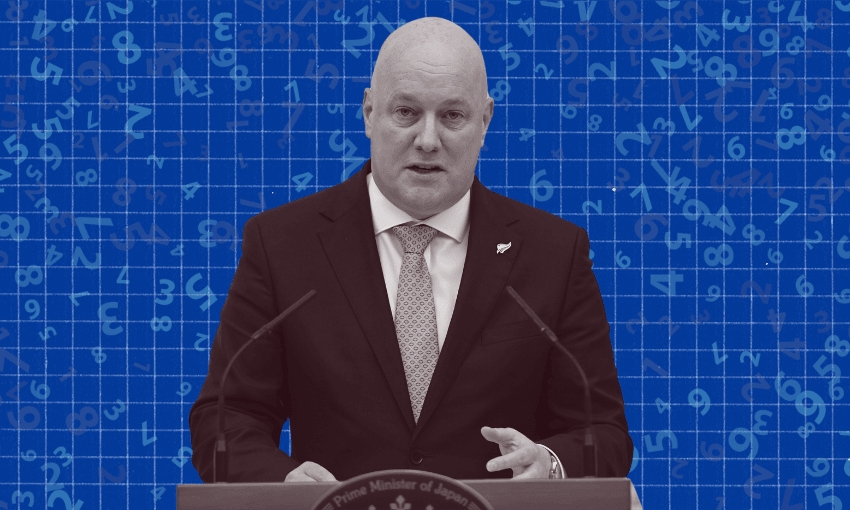Luxon has an opportunity to emerge as a stabiliser without the diplomatic risk of poking the bear in the White House.
Last month, pundits from across the political spectrum were begging Christopher Luxon to add a modicum of clarity to the way he communicates after a disastrous interview with Mike Hosking following Andrew Bayly’s resignation.
There was a flurry of speculation about his leadership amid poor polling for the coalition government and Luxon personally. Janet Wilson made the case for Luxon to return to school for lessons on the correlation between communication style and trust. “Well-reasoned messaging will not only put a leader’s values on display, ensuring trust, but it’s the soft power that – executed well – will convince voters, even if they originally thought the opposite,” she wrote.
Luxon’s prolix speaking style can sound like the oratorical equivalent of dryer lint. It’s there and abundant, but you can not decipher what it’s made of or what purpose it serves. He calls us — the voters, people and citizens — customers, and uses phrases like “not the Kiwi way”. He often fails to reveal what he thinks the Kiwi way is, or why he might believe certain behaviour falls outside the scope of that vague articulation of national values.
Last Thursday morning, Luxon’s mouth wasn’t full of lint but something resembling real substance.
Speaking at a breakfast at the Wellington Chamber of Commerce about the economic chaos unleashed by Donald Trump’s “liberation day” tariff announcement, he said that while some commentators had “declared an end of an era to free markets”, he was not ready to “throw in the towel quite yet”.
“Kiwis,” he said, “have worked too hard and for too long to give up on the values and institutions which have seen our country and the region we live in thrive.”
Hold the ticker tape parades and the Nobel peace prizes, but those are plainly spoken words of intention and purpose, rooted in a belief in the merits of rules-based order, underpinned by a value many in New Zealand would agree with. That’s three for three when it comes to communicating during uncertain times as a leader.
Just as Jacinda Ardern was pretty circumspect about Trump during his first term as president when she was prime minister, Luxon is as restrained as all leaders of small trading nations are right now. New Zealand prime ministers in recent history have always had to try to balance our sovereignty with our economic and security interests.
Luxon said he would join a call with other world leaders to test what they “can do together to buttress the rules-based trading system”. He mentioned the idea of members of the European Union and the Comprehensive and Progressive Agreement for Trans-Pacific Partnership (CPTPP) working together. Labour’s David Parker has previously floated this idea, and he will leave parliament next month with his reputation as an intelligent and moderate political boffin intact. There are far worse people that Luxon could be on the same page as.
You don’t have to feel remotely inspired by Luxon’s words or his love of free trade, but faced with a disinhibited, angry bear obsessed with deference who is intent on burning institutions down, they are what they need to be.
It’s also perfectly reasonable to find Luxon’s managerial approach and language unrelatable and unpalatable. Those who have worked in places where corporatese is common have plenty of war stories about why it often sounds insincere and masks ineffective leadership. But Luxon learned it in a system of business and economic ideology that requires a functional, rules-based system of global trade. If that is what he’s prepared to go to the wall for, or at least vigorously defend, and that’s what it has taken to get him to speak some words of substance, he might finally find a way of explaining his idea of “the Kiwi way” to voters.
He has the opportunity to emerge as a stabilising force and a kind of “anti-Trump” without the diplomatic risk of poking the bear or explicitly condemning him. Perhaps Luxon might just find his way.


